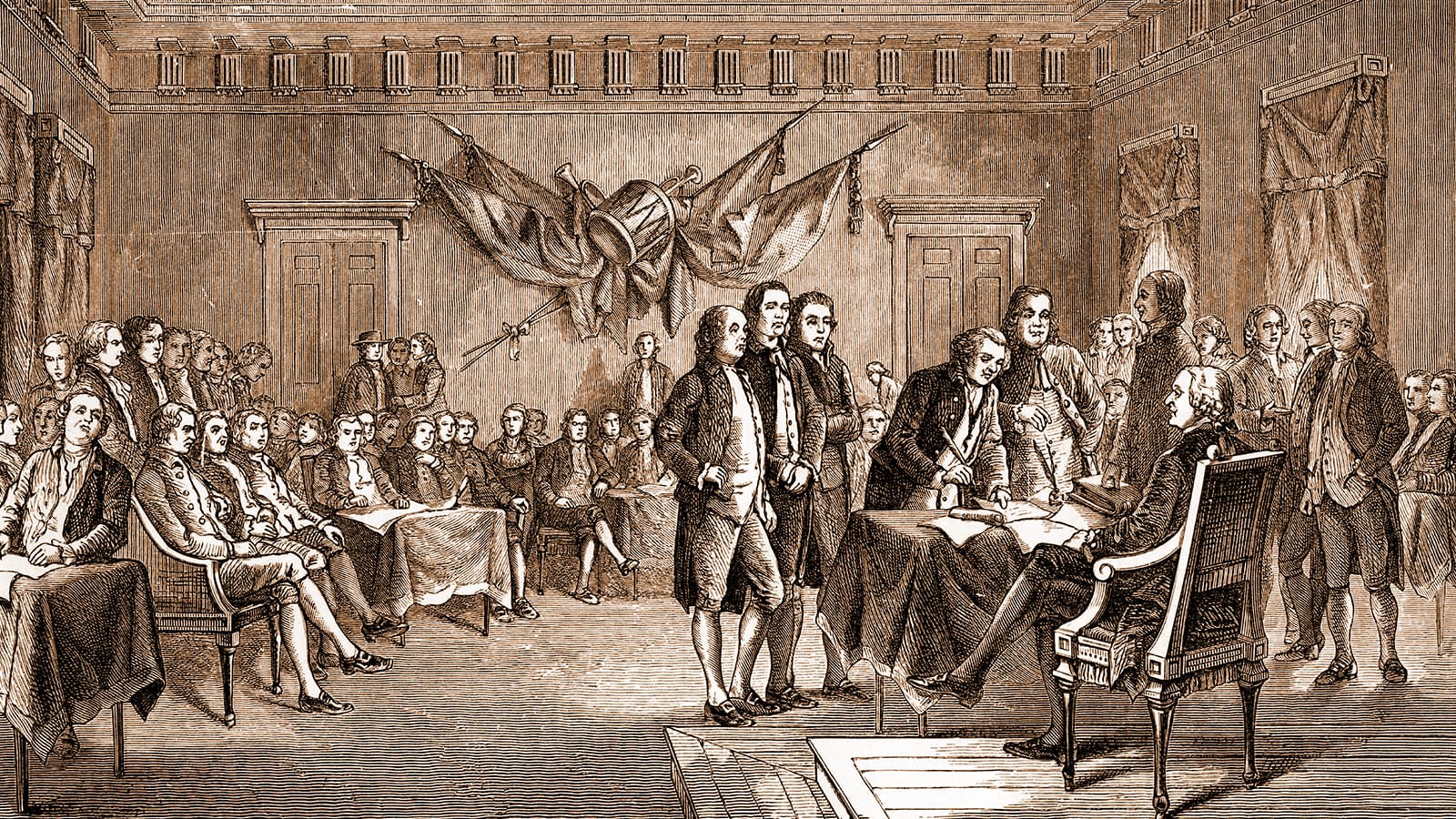The Founding Fathers were an illustrious, accomplished lot, but behind their gilded titles and numerous accomplishments, they’re still human—albeit with more fascinating lives than most of us. Here are some interesting bits of trivia about them!
George Washington holds the highest rank in the U.S. Military.
While George Washington retired, he was a lieutenant general (three stars). However, his military contributions were incomparable: Aside from being the commander-in-chief that defeated the British in battle, he also set the standard on the organization and protocol of American soldiers. He was the father of the United States and its military, and he set a lot of precedents during his term. That’s why in 1976, congress signed a resolution that posthumously promoted Washington to the highest military rank: General of the Armies of the United States. The resolution also recommended that no officer of the U.S. Armed forces and should ever outrank him.
Thomas Jefferson helped popularize ice cream in the U.S.A.
Thomas Jefferson spent several years in France as a diplomat, and that was where he most likely tasted ice cream. When he returned to the U.S.A., he brought four ice molds with him and had his staff serve the frozen dessert in Monticello, his plantation in Virginia. There were also references of Jefferson serving ice cream during his term as president, usually served inside a pastry.
Benjamin Franklin is in the International Swimming Hall of Fame.
Benjamin Franklin, one of the most brilliant Americans of all time, was known for a lot of things: He was a great writer, a prolific inventor, and a founder and the first president of the University of Pennsylvania. But did you know that he was also a swimming ingenue? Franklin can do several swimming strokes, and he even invented wooden hand paddles to propel himself through the water. He was such a great swimmer, that a friend offered to help him launch a swimming school—an offer that he, quite surprisingly, did not take on.
John Jay retired from politics to become a farmer.
Sometimes, the simple life is the best. Take it from John Jay, the reserved, dignified oft-forgotten Founding Father whose accomplishments were just as notable as those of his peers. After a notable political career, in which he served as the first chief justice of the U.S. Supreme Court and the second governor of New York state, Jay retired to his farm in Westchester County, New York in 1801 and lived a quiet life mostly away from politics, advocating for education for African Americans and becoming the president of the American Bible Society.
John Adams was in a long-distance relationship with his wife.
John Adams’ role in the American Revolution and its aftermath caused him to spend long months with the Continental Congress in Philadelphia, far away from Abigail, who oversaw their farm in Braintree, Massachusetts. To keep the love alive, the Adamses wrote to one another constantly, sometimes penning multiple letters a day to each other. The accumulated 1,160 archived pieces of their correspondence provide valuable insights into America’s turbulent first years.
“Remember the Ladies, and be more generous and favourable to them than your ancestors,” Abigail wrote to John. “If perticuliar care and attention is not paid to the Laidies we are determined to foment a Rebelion, and will not hold ourselves bound by any Laws in which we have no voice, or Representation.”
James Madison was Princeton’s first graduate student.
James Madison attended Princeton University (then known as the College of New Jersey) from 1769 to 1771, finishing a four-year course in merely two years. Still undecided about what to do with his life after graduation, he stayed at Princeton for one more year to study Hebrew and other subjects under the tutelage of Princeton President John Witherspoon. Though he wasn’t formally awarded with an advanced degree, Princeton still recognizes him as its first graduate student.
Alexander Hamilton founded the oldest continuously published newspaper in the U.S.A.
Alexander Hamilton’s popularity has surged in recent years thanks to his namesake musical, but there are some things that weren’t tackled in the play. On November 16, 1801, “the ten-dollar founding father without a father” established a daily newspaper, the New-York Evening Post, along with other New York members of the Federalist Party. The paper eventually became the New York Post, one of the leading national papers up until this day.
Speaking of Hamilton, did you know that A. Ham himself, Lin-Manuel Miranda, got his mother-in-law a Nixplay frame for Christmas? Be like Lin and celebrate Independence Day with a Nixplay Frame of your own! Get 15% off selected frames, only until July 14!
Marianne is Nixplay’s Web Content Editor. Her hobbies include exploring new places, playing table tennis, and cuddling puppies. Send her a message at marianne.salazar@nixplay.com.


